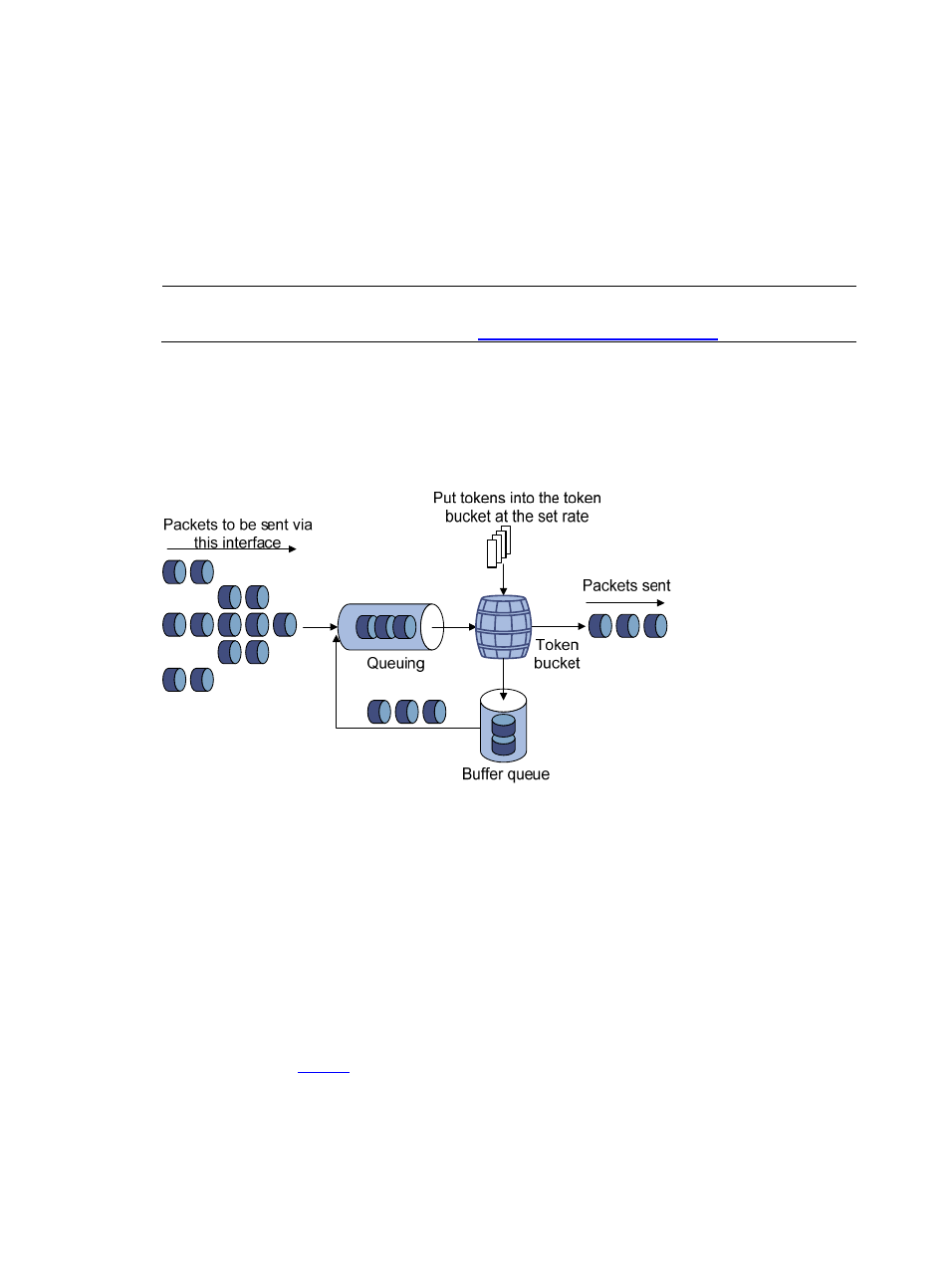Line rate, Configuring a qos policy, Configuration task list – H3C Technologies H3C SecPath F1000-E User Manual
Page 517

9
Line Rate
Line rate also uses token buckets to evaluate traffic specifications for traffic control. The line rate of a
physical interface specifies the maximum rate for forwarding packets (including critical packets).
Compared with traffic policing, line rate can only limit traffic rate on a physical interface. To limit the rate
of all the packets on an interface as a whole, using line rate is easier.
NOTE:
For more information about token buckets, see
Traffic evaluation and token buckets
.
With line rate configured on an interface, all packets to be sent through the interface are firstly handled
by the token bucket at line rate. If there are enough tokens in the token bucket, packets can be forwarded;
otherwise, packets are put into QoS queues for congestion management. In this way, the traffic passing
the physical interface is controlled.
Figure 5 Line rate implementation
In the token bucket approach to traffic control, bursty traffic can be transmitted so long as enough tokens
are available in the token bucket; if tokens are inadequate, packets cannot be transmitted until the
required number of tokens are generated in the token bucket. Thus, traffic rate is restricted to the rate for
generating tokens, thus limiting traffic rate and allowing bursty traffic.
Configuring a QoS Policy
Configuration Task List
Perform the tasks in
to configure a QoS policy:
